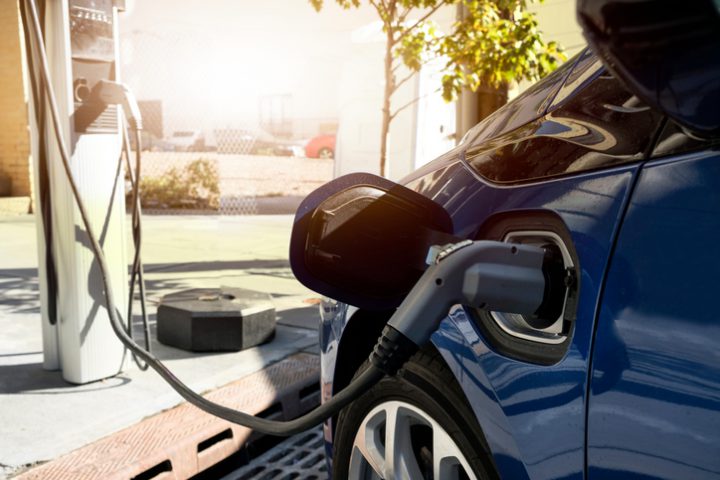The decision to switch from a traditional gas-powered car to an electric one can be daunting, considering the unfamiliarity and high costs. But it appears electric cars are gaining popularity.

Swedish car maker Volvo said all its new cars from 2019 will have an electric motor, ending altogether the manufacture of automobiles that have only a combustion engine. And the company isn’t alone. France also recently announced that it aims to end the sale of gas and diesel cars by 2040.
The announcements come as a forecast by Bloomberg New Energy Finance predicts electric cars will be as affordable as traditional gas-powered cars by 2025, and that sales will outpace gas vehicles by 2038.
WATCH: Electric cars can help combat climate change: study

So should Canadians jump into the electric vehicles scene?
Electrical engineering professor Olivier Trescases says much of Canadians’ reluctance to make the change stems of costs.
Are affordable options available?
While trends suggest electric vehicles are becoming more affordable, Canada has relatively limited options compared to other western countries, Trescases told Global News.
That means there aren’t many affordable options — yet. Many companies are beginning to offer lower prices, such as Tesla’s upcoming Model 3, which is slated to start around US$35,000.
READ MORE: Climate change: Electric cars can make bigger difference than once believed, study finds
“A lot of people have sticker shock,” Trescases said. “But you have to adjust your mindset.”
Trescases explained that maintenance costs for electric cars will likely be lower, and drivers won’t have to pay for gas.
Do Canadians get money incentives?
Some Canadian provinces offer incentives for drivers who opt for electric cars. The Ontario government offers a rebate of up to $14,000 for cars, and $1,000 off charging installations. Quebec offers up to $8,000 off cars, while British Columbia gives up to $5,000.
READ MORE: Ontario boosts incentives to people who buy electric cars
While the incentives have helped get Canadians on board, there has been backlash against them, Trescases notes.
“Basically that we’re subsidizing rich people to buy electric cars,” he said.
There are also some added costs. In June, Vancouver introduced a fee for using the city’s charging stations. Car owners will have to pay $2 per hour for a slow charge, and $16 per hour for a fast charge.
WATCH: BC Hydro’s electric car plug-in app

Is there proper infrastructure?
Charging stations — or in some cases the lack of them — is a legitimate cause for concern, although it’s not as bad as people may think, Trescases said.
Many Canadians who live in houses can install charging stations in their garage or just outside the home. New condominium buildings are also adding charging areas in parking lots.
READ MORE: Ontario misses deadline for electric vehicle charging stations
“It’s almost an increase in convenience. You can recharge at home,” the professor said.
Things are tricky for those who live in older buildings, and in areas without a public vehicle charging station.
The Ontario government had pledged to tackle the issue by building nearly 500 stations across the province, but missed the March deadline for the project. Only two-thirds of stations were completed on time.
Are electric vehicles practical in Canada?
Many Canadians are unsure of how well electric cars function in the winter, but Trescases explains that heated batteries work just as well in cold weather.
However, warming up batteries uses up more power, which means the car may need to be charged more often.
WATCH: Tesla’s first mass-market car poised for debut

Trescases says Canadians who drive 20-100 kilometres each day, and have access to a charging station, should have no problem with electric cars.
The catch is that electric cars with longer range (battery life) also cost more.
Tesla introduced the longest-range electric car on the market in January. The Model S 100D, with a range of 539 kilometres on full charge, costs $155,550.




Comments